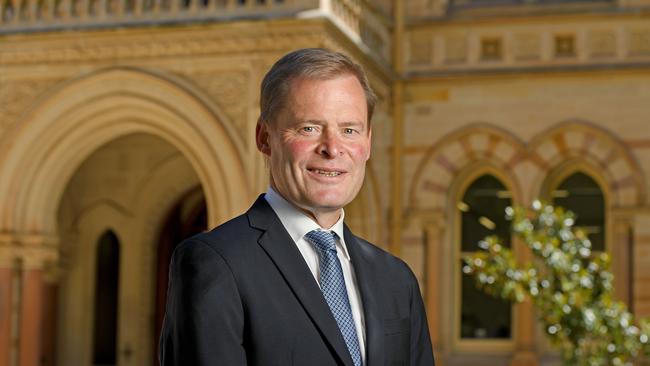Uni of Adelaide vice-chancellor Peter Rathjen resigns
University of Adelaide vice-chancellor Peter Rathjen has resigned following an ICAC investigation into his conduct.

University of Adelaide vice-chancellor Peter Rathjen has resigned, two months after taking indefinite leave when the South Australia’s Independent Commissioner Against Corruption opened an investigation into his conduct.
The university’s chancellor, Catherine Branson, told staff and students in an email on Monday that Professor Rathjen had resigned due to ill health.
“The university extends its appreciation for the contribution Professor Rathjen has made since taking up the role in 2018,” she said.
Her announcement follows a report in The Australian on Saturday that the terms of his resignation were being finalised.
Read more: Rathjen expected to resign | Uni of Adelaide loses two leaders | To lose two looks like carelessness | Uni faces $100m loss |
Professor Rathjen’s resignation ends two months of turmoil for the university which began on May 4 when the resignation of then chancellor Kevin Scarce was announced, followed by the announcement the next day that Professor Rathjen was on indefinite leave.
There was no explanation for the unprecedented moves until later in the week when Independent Commissioner Against Corruption Bruce Lander said he had commenced an investigation into allegations of improper conduct by Professor Rathjen, which included an investigation of how the university had dealt with the allegations,
Mr Lander has not yet announced the result of his investigation of Professor Rathjen and the university.
Ms Branson was appointed chancellor last week, but has been acting in the job since the resignation of Rear Admiral Scarce, who is also a former governor of South Australia.
Mike Brooks will continue in as acting vice chancellor of the university while it carries out a search for a permanent successor to Professor Rathjen.
The University of Adelaide is also dealing with an expected $100m budget shortfall this year due to COVID-19 travel restrictions preventing the arrival of international students.




To join the conversation, please log in. Don't have an account? Register
Join the conversation, you are commenting as Logout